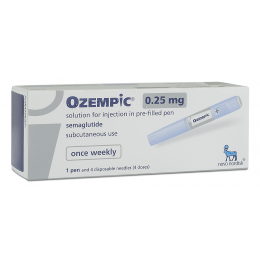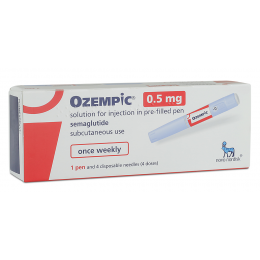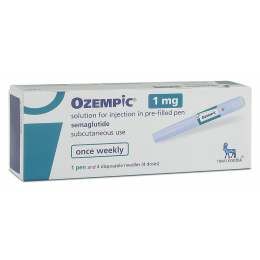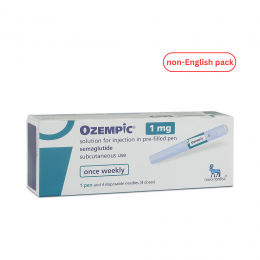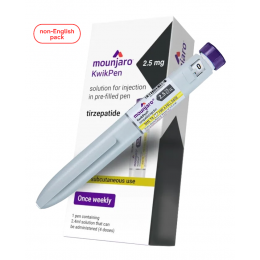Login Form
Registration
Profile Informations
Login Datas
or login
Weight Loss
Buy trusted weight loss products and injections online at Activa Derma. Weight loss is a significant health goal for many people, whether due to health concerns or personal preferences. Achieving and maintaining a healthy weight is essential for improving overall well-being, boosting confidence, and reducing the risk of developing chronic diseases such as diabetes, heart disease, and hypertension. This guide explores various weight loss methods, focusing on safe and effective approaches, including weight loss injections you can buy online conveniently.
Understanding Weight Loss
Weight loss involves reducing body mass, which is usually achieved by altering dietary habits, increasing physical activity, and making other lifestyle changes. It can be a challenging and long-term process, but with the right plan, it is achievable. For those ready to take action, you can buy weight loss products wholesale or in smaller quantities to fit your needs.
While there are numerous ways to lose weight, each person's journey is unique. What works for one individual may not necessarily work for another, and that's why it's important to approach weight loss in a sustainable way tailored to your specific needs.
Key Factors That Affect Weight Loss
-
Metabolism: The rate at which your body burns calories.
-
Diet: The types of foods you eat and your calorie intake.
-
Physical Activity: How much exercise and movement do you engage in?
-
Genetics: Your genetic makeup may influence how your body stores and burns fat.
-
Hormonal Balance: Hormones play a role in regulating hunger, fat storage, and metabolism.
-
Mental Health: Stress, emotional eating, and mental well-being can all impact weight management.
Effective Weight Loss Methods
Many strategies exist to help individuals achieve their weight loss goals. It is important to remember that sustainable weight loss typically involves a combination of healthy eating, regular exercise, and behavioral changes. For additional support, you can buy weight loss injections at Activa Derma to complement your regimen safely.
Healthy Eating
The foundation of any successful weight loss plan is a balanced diet. Focus on:
-
Whole foods: Incorporate fresh vegetables, fruits, lean proteins, and whole grains.
-
Portion control: Be mindful of portion sizes to avoid overeating.
-
Reduced calorie intake: Creating a calorie deficit (burning more calories than you consume) is essential for weight loss.
-
Hydration: Drinking plenty of water helps with digestion and can reduce hunger.
Regular Exercise
Physical activity is a crucial component of weight loss. It helps burn calories, strengthens muscles, and improves cardiovascular health.
-
Aerobic exercises: Activities like walking, running, swimming, and cycling are excellent for burning calories.
-
Strength training: Building muscle helps increase metabolism, which aids in burning fat.
-
Consistency: Regular exercise, combined with a balanced diet, provides the best results for sustainable weight loss.
Behavioral Changes
Sustainable weight loss also requires modifying habits and behaviors:
-
Mindful eating: Paying attention to what and how much you eat can prevent overeating.
-
Sleep: Getting enough quality sleep is crucial for weight management.
-
Stress management: Reducing stress can prevent emotional eating and help you stay on track with your weight loss goals.
Weight Loss Injections
Weight loss injections are prescription medications that assist in managing weight. These injections work by altering hunger cues, increasing feelings of fullness, and reducing calorie intake, making them a helpful tool for those struggling with obesity. You can conveniently buy weight loss injections online at Activa Derma with trusted sourcing and expert guidance.
What Are Weight Loss Injections?
Weight loss injections involve administering medications under the skin over a period of time. These injections mimic hormones in the body that control appetite, food intake, and metabolism. Typically, these injections are prescribed for individuals with a body mass index (BMI) of 27 or higher, especially those who have weight-related health issues like type 2 diabetes or hypertension.
Types of Weight Loss Injections
Several types of weight loss injections are currently available. The most commonly prescribed include:
-
Liraglutide: This medication mimics the effects of a hormone in the body that controls appetite. It helps reduce hunger and promotes a feeling of fullness, leading to reduced calorie intake.
-
Semaglutide: Like liraglutide, semaglutide helps reduce appetite and promote weight loss by mimicking a hormone that increases satiety.
-
Tirzepatide: This medication has a similar mechanism of action to liraglutide and semaglutide, and some studies have shown improved results for weight loss and blood sugar control.
You can buy these weight loss injections wholesale or retail at Activa Derma with assurance of quality and competitive pricing.
How Do Weight Loss Injections Work?
Weight loss injections help individuals control their appetite and food intake. The medications are typically injected once a week and may be administered at home after proper training from a healthcare provider.
These injections work by mimicking hormones that regulate hunger, such as glucagon-like peptide-1 (GLP-1), which helps to slow gastric emptying, reduce hunger, and improve blood sugar regulation.
Benefits of Weight Loss Injections
-
Appetite suppression: The primary benefit is reduced hunger, which makes it easier to stick to a calorie-restricted diet.
-
Increased fullness: These injections help people feel fuller for longer, reducing the need for frequent eating or snacking.
-
Blood sugar regulation: They can also help manage blood sugar levels, making them especially beneficial for people with type 2 diabetes.
-
Support in achieving weight loss goals: For individuals who have struggled with weight loss through diet and exercise alone, injections can provide additional support.
Risks and Side Effects
While weight loss injections can be effective, they are not without risks. Common side effects include:
-
Nausea
-
Bloating
-
Diarrhea or constipation
-
Injection site reactions (redness, swelling, or pain)
More serious risks, such as thyroid cancer and pancreatitis, have been identified in clinical trials, but these risks are relatively rare. It's crucial to consult with a healthcare provider to determine whether weight loss injections are right for you.
When to Consider Weight Loss Injections
Weight loss injections may be appropriate if:
-
You have a BMI of 27 or higher and are struggling with weight-related health conditions.
-
Other weight loss methods, such as diet and exercise, have not been successful.
-
You have a medical condition that makes it difficult to lose weight, such as diabetes.
For those interested, you can buy weight loss injections online at Activa Derma, where expert support and quality assurance ensure safe treatment.
Is Weight Loss Surgery Right for You?
For some individuals, non-surgical weight loss methods such as injections and lifestyle changes may not be enough. In such cases, weight loss surgery may be considered. There are several types of bariatric surgery available, including:
-
Gastric Bypass: A procedure that reduces the size of the stomach, limiting food intake.
-
Gastric Sleeve: This involves removing a portion of the stomach to reduce its size and the amount of food you can eat.
-
Lap-Band Surgery: A band is placed around the stomach to restrict food intake.
Bariatric surgery is typically recommended for individuals with a BMI of 40 or higher or for those with a BMI of 35 and other obesity-related health issues. Surgery is considered a last resort after other weight loss options have been explored.
In Conclusion
Weight loss is a highly individualized process that requires a combination of proper nutrition, regular exercise, and behavioral changes. For some individuals, weight loss injections can be a helpful addition to their weight loss plan, assisting with appetite control and supporting healthier habits. You can buy weight loss injections wholesale or retail online at Activa Derma, making it easier than ever to access trusted products that support your goals.
Whether you're considering lifestyle changes or seeking medical support through injections or surgery, the path to achieving a healthier weight is about more than just numbers on a scale. It's about improving your overall health and enhancing your quality of life.

